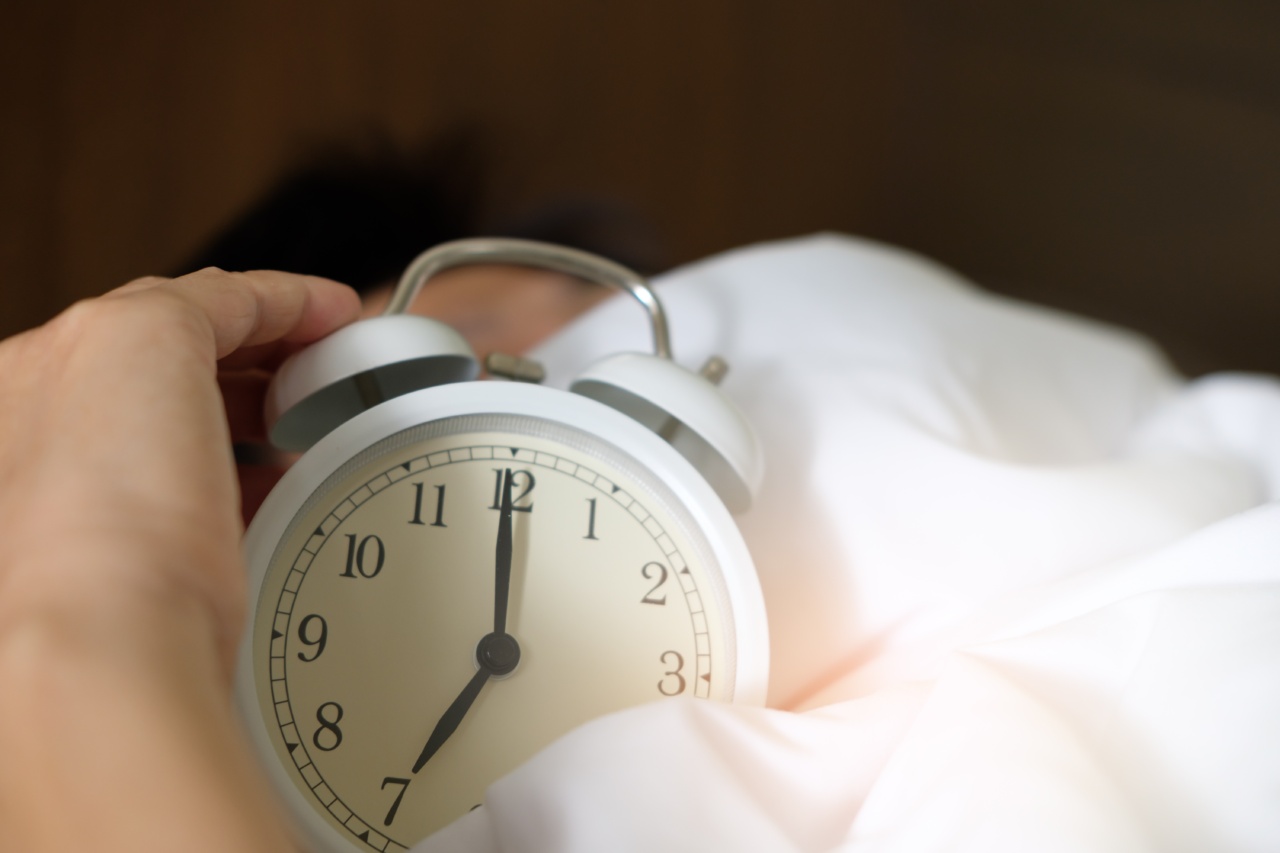Alcohol is a widely consumed substance that is known to affect different aspects of human health. Sleep, one of the essential biological functions, is also affected by alcohol.
People tend to believe that alcohol makes them feel drowsy and helps them fall asleep faster, but in reality, alcohol can cause disturbances in the internal sleep clock. In this article, we will discuss how alcohol affects your internal sleep clock and its consequences on your health.
Effects of Alcohol on Internal Sleep Clock
The internal sleep clock, also known as circadian rhythm, is a biological process that regulates the sleep-wake cycle. This process is controlled by a group of cells in the brain that respond to light and dark signals received by the eyes.
Consuming alcohol before sleep can disrupt the internal sleep clock in several ways:.
1. Delayed Onset of Sleep
Alcohol initially causes drowsiness and can help people fall asleep faster. However, as the body metabolizes alcohol, it acts as a stimulant and can lead to more frequent awakenings and a delayed onset of sleep.
This delay can disrupt the internal sleep clock and cause sleep deprivation.
2. Reduced Rapid Eye Movement (REM) Sleep
REM sleep is a stage of sleep where most of the dreaming occurs. Alcohol consumption before sleep can reduce the time spent in REM sleep.
This reduction can cause the internal sleep clock to shift, leading to difficulties in maintaining a regular sleep cycle.
3. Decreased Quality of Sleep
The quality of sleep can be affected by the amount and timing of alcohol consumption. Consuming alcohol before sleep can lead to interrupted sleep, restless sleep, and a reduced amount of deep sleep.
All of these changes can disrupt the internal sleep clock and create difficulties in maintaining a healthy sleep schedule.
4. Altered Melatonin Production
Melatonin is a hormone that helps regulate the sleep-wake cycle and is produced naturally by the body. Alcohol consumption before sleep can reduce the production of melatonin, leading to further disruption of the internal sleep clock.
5. Increased Nighttime Urination
Alcohol acts as a diuretic, which means it increases the production of urine. Drinking alcohol before sleep can cause disturbances in the internal sleep clock by increasing nighttime urination, leading to frequent interruptions in sleep.
Consequences of Disrupted Internal Sleep Clock
The internal sleep clock plays a vital role in maintaining a healthy sleep-wake cycle. Disruptions in this clock can lead to several health consequences:.
1. Sleep Deprivation
Disruptions in the internal sleep clock can cause sleep deprivation, leading to fatigue, decreased mental performance, and poor concentration.
2. Mood Disorders
Disruptions in the internal sleep clock can also lead to the development of mood disorders such as depression and anxiety.
3. Cardiovascular Disease
Disruptions in the internal sleep clock can increase the risk of developing cardiovascular disease, including high blood pressure, heart disease, and stroke.
4. Metabolic Disorders
Disruptions in the internal sleep clock can also increase the risk of developing metabolic disorders such as obesity and diabetes.
Conclusion
Alcohol consumption can have significant effects on the internal sleep clock, which can lead to health consequences. A healthy sleep-wake cycle is essential for maintaining overall health and wellbeing.
Therefore, it is crucial to avoid consuming alcohol before sleep and to maintain a regular sleep schedule to promote a healthy internal sleep clock.





























